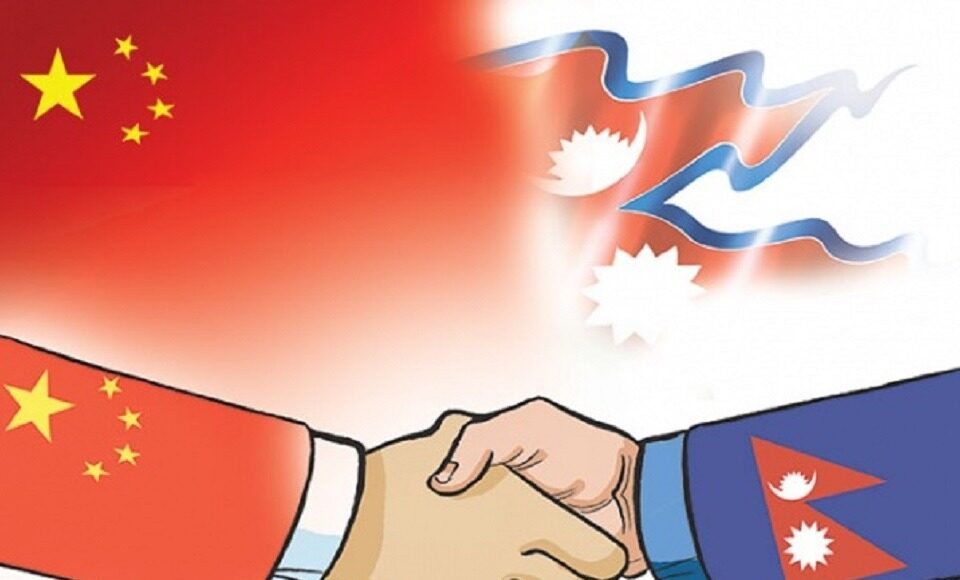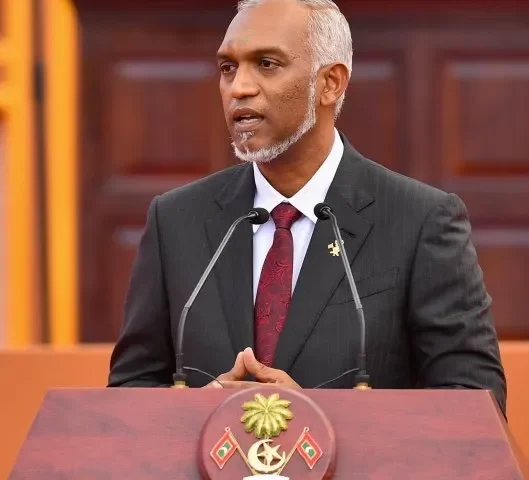The Maldives, the smallest member in the South Asia region, has seen its fair share of diplomatic tussles over Chinese loans. President Nasheed, despite his differences with the Chinese Ambassador, maintained an amicable relationship. However, disputes arose over the varied interpretations of the loans China extended to the Maldives.
This past episode comes to mind when observing a similar spat in Nepal, albeit with less decorum. The recent online altercation between the Chinese ambassador to Nepal and a veteran journalist has brought Beijing’s aggressive strategies to the forefront. The journalist accused the Chinese government of charging higher interest rates for developmental loans.
China’s Ambassador to Nepal, Chen Song, sparked controversy by demanding a public apology from Nepali journalist Gajendra Budhathoki over a social media post. Budhathoki claimed that Nepal had taken a loan from China at a higher interest rate than officially recorded. Ambassador Chen insisted on an apology, asserting that the information was false. Several journalists and diplomats in Nepal criticized the Chinese envoy’s remarks, considering them beyond the norms of standard diplomatic conduct.
Nepal, China’s small neighbor, has seen a significant influx of Chinese loans aimed at developing its infrastructure, albeit with its own set of challenges. These loans have raised considerable concerns about Nepal’s increasing indebtedness, mirroring the experiences of other countries like Sri Lanka and Pakistan.
Feasibility studies conducted to ascertain the benefits of the developmental loans in Nepal have revealed the adverse nature of the indebtedness these fundings have led Nepal’s economy into. By intaking large economic packages, Nepal is at risk of suffering a similar fate as other developing countries in its neighborhood. These studies have flagged not only the economic impact but also concerns about the political instability high-interest rate loans bring.
Reports of Nepali officials seeking grants instead of soft loans for development projects have further delayed any implementation of the projects, given the CCP’s unwillingness to aid Nepal’s infrastructure development without strategic gains, as reports indicate in Kathmandu media. However, in the wider interest of the Nepali citizens, it is best that the government persists in receiving grants rather than loans that could stifle the country’s economy. Enhancing bilateral engagement is also complicated by the fact that Nepal faces a hefty $1.84 billion trade deficit with China, which is only expected to increase in the coming years.
The Chinese demand for extending a combination of high-interest rates, short repayment periods, and stringent collateral requirements has significantly increased the risk of over-indebtedness for Nepal. All these concerns emerge in light of an already economically volatile Nepal.
The country’s current debt levels are already a concern, with its external debt reaching approximately $5.5 billion in 2022. Adding more debt through Chinese loans worsens this situation, potentially leading to a debt trap where the country is unable to meet its repayment obligations.
As part of these infrastructure projects, the most notorious one remains the recently inaugurated Pokhara International Airport. Financed by a $215.96 million loan from China, the airport project has been criticized for its high cost, questionable economic returns, and safety concerns. If the airport does not attract sufficient traffic, as has been the case in the past few years, Nepal may struggle to generate the revenue needed to repay the loan.
The risk of losing control over national assets or strategic infrastructure to the CCP in case of default is a real fear, according to media reports, with influence over Nepal’s domestic and foreign policies.

This is not the first controversy of this nature. In an earlier incident, several members of Parliament asked the government to caution—and seek clarification from—Chinese Ambassador to Nepal Chen Song over his ‘undiplomatic’ remarks on Nepal’s energy trading with India and the state of the Indian economy.
Speaking at a discussion titled ‘China in Global Economy and its Impact in Nepal,’ Chen spoke at length about Nepal’s trade with India. “Unfortunately, you have a neighbor like India, because India is a huge market with a huge potential which you can tap into,” the Chinese ambassador, who assumed office in Kathmandu in January this year, said. “But at the same time, India’s policy towards Nepal and other neighbors is not so friendly and not so beneficial to Nepal. So we call that policy of constraints.”
The ambassador’s statement sparked controversy in Nepal, drawing flak from all quarters. Several politicians and foreign policy experts have taken exception to the ambassador’s comments.
Speaking at the regular House session and at a meeting of the International Relations and Tourism Committee of the House of Representatives several members of Parliament across the political spectrum urged the government to summon the ambassador and warn him against making such remarks in the future.
“Ambassadors, particularly from neighboring countries, should be mindful of Nepal’s geopolitical sensitivity while making any statement,” Madhav Kumar Nepal, a former prime minister and Chairman of the CPN (Unified Socialist), said at the meeting of the International Relations and Tourism Committee of the lower house on Thursday.














